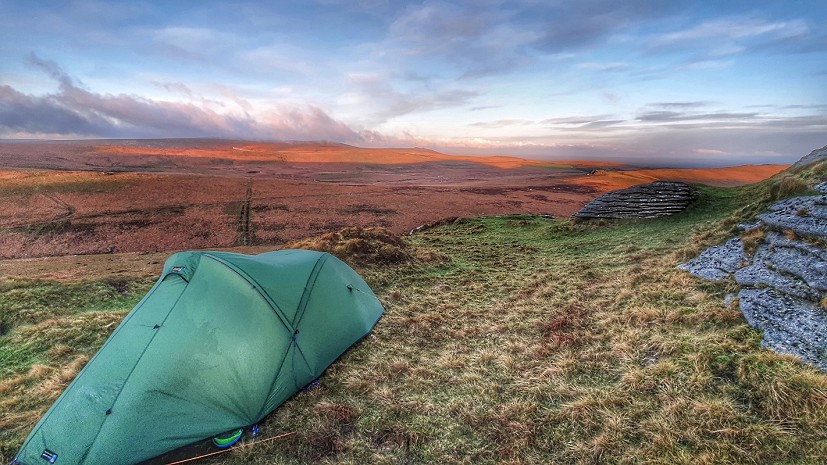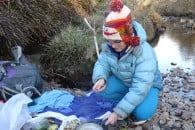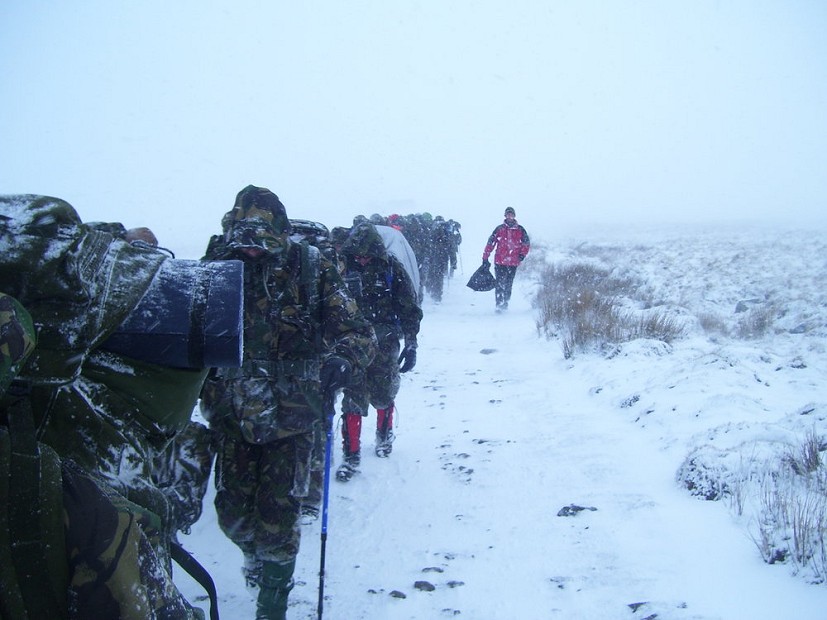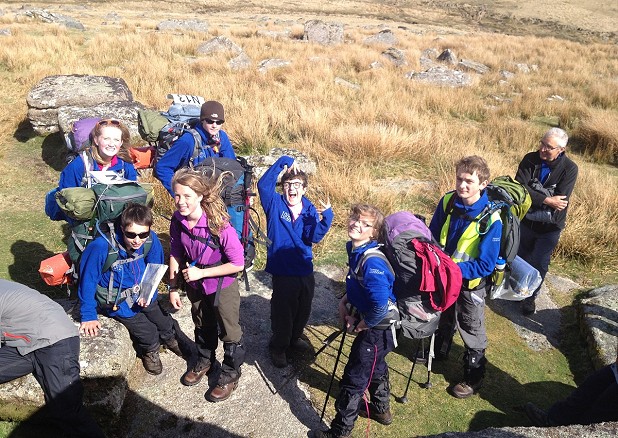Dartmoor Camping - Serfdom is back, and the future of the Ten Tors challenge at risk
Last week's High Court ruling that there is no right to wild camp on Dartmoor has outraged walkers and access campaigners. One big concern is the possible impact on the Ten Tors challenge, an event that has inspired thousands of young people, fostering outdoor skills, self-reliance, and respect for nature. Denying future generations the freedom to camp in the only significant wild land in southern England would be heartbreaking, says Fliss Freeborn, a former Ten Tors participant herself.
When I was 14 and living in deepest darkest Cornwall, I signed up to do the Ten Tors challenge with my local Explorer Scout group. Although this year marks a decade since I crossed that finish line with my teammates, it remains to this day the hardest thing I have ever done - but the friendships I formed will last for life, as will the knowledge and respect I gained for the outdoors. Now however, as the right to wild camp on Dartmoor disappears in a puff of odious neo-feudalism, the future of this event is murky at best. While it's unlikely it will be cancelled or lost altogether, the loss of our historic wild camping tradition means that Ten Tors might not continue to offer the same untamed outdoor experience that currently makes it so unique.

For those less familiar with the challenge, Ten Tors sees around 2400 youngsters from all over the southwest schlepp across Dartmoor for a weekend in April, carrying everything they need for a two day hike, punctuated by a night of wild camping. The goal of the event is to check in to 10 different tors with the route-planning, navigation, food and shelter all shared amongst the team of six, with no outside help allowed. There are three levels of challenge: the Bronze 35 mile challenge, where participants wild camp at each checkpoint, and then a Silver 45 mile and a 55 mile Gold challenge, both of which require teams to wild camp in between tors.
Rob Holmes, a Ten Tors leader from Cornwall, discusses the impact of the overturned legislation:
"It's tricky territory" he says.
"I imagine exceptions will be made for the main Ten Tors event concerning wild camping, otherwise the whole thing really would become impossible. However, much of the training we do takes place on Dartmoor in the lead-up to the challenge so we need landowners to grant us permission to pitch on these weekends too. It's looking like it's going to be a bureaucratic nightmare to keep things running in exactly the same way from here."
The training for Ten Tors takes place throughout the winter months, and along with many thousands of others, this is where I learned the vital skills I still use every time I stay in a tent outdoors. In addition to learning advanced navigation using triangulation and step-counting, plus building hill fitness, Ten Tors training fosters an outdoor competency that manifests itself in a number of smaller but very significant ways. For example, the training was the first time I learned about layering systems for outdoor clothing; about packing a rucksack so its weight is properly distributed; about what to eat on the hill, and the impact that team morale can make to your enjoyment of a weekend.
And while many of these things are teachable without wild camping, they are made all the more important when you're bedding down for the night somewhere completely remote. Plus, there are a whole host of other skills intrinsic to wild camping, which, given last week's court ruling, could be lost forever in England.
"Wild camping is just so different from rocking up at a campsite," says Rob, who has been taking groups out to camp on Dartmoor for more than a decade.
"Firstly, it teaches resource management. You need a water source for both drinking and making dinner, so learning how to choose a spot that can fulfill that first essential need - and then balancing this with other things like the gradient on which you're pitching a tent, or the quality of the ground beneath you - is a skill in itself. Then you learn where and how to go to the toilet outdoors with minimal impact to those important water sources. A ready-made campsite with taps and loos takes away the responsibility of the camper to engineer comfort for themselves, which is part of the greater satisfaction of wild camping."
Additionally, anyone who wild camps properly knows that they have a responsibility to take only photos, and leave only footprints. By ingraining this into as many young people as possible, we can continue to create a culture of care and awareness when it comes to the environment.
From personal experience, knowing that your right to be somewhere hinges on your responsibility to keep it tidy means that any illicit outdoor drinking and camping performed in the later teenage years (oh yes - quarries, beaches, warehouses, fields, woodlands, garages) will be cleaned up without a trace. Sadly, a distinct lack of respect for surroundings is one of the reasons cited for banning wild camping on Dartmoor, although I do believe that the impact of the few antisocial people who do leave a mess is being greatly overstated as a means to ban all wild camping. If landowners were so concerned about ecological impact, then they wouldn't rear grouse - but that's another article.
In addition to the specific nuts and bolts of it all, there is a wider, more spiritual implication to losing the right to wild camp in England, and not just for the thousands of young people who participate in Ten Tors and Duke of Edinburgh awards on Dartmoor. Rob sums it up well:
"There's something magical about wild camping, whoever you are, and in whatever respect you're doing it. To see it lost from the only place in England and Wales, and to see it taken away from young people who now need it most, is heartbreaking. I can only hope that other landowners on Dartmoor are more receptive to sentiment of the people who have been camping on these moors without issue for years."
For ideas for longer walks on Dartmoor, see these Route Cards:



